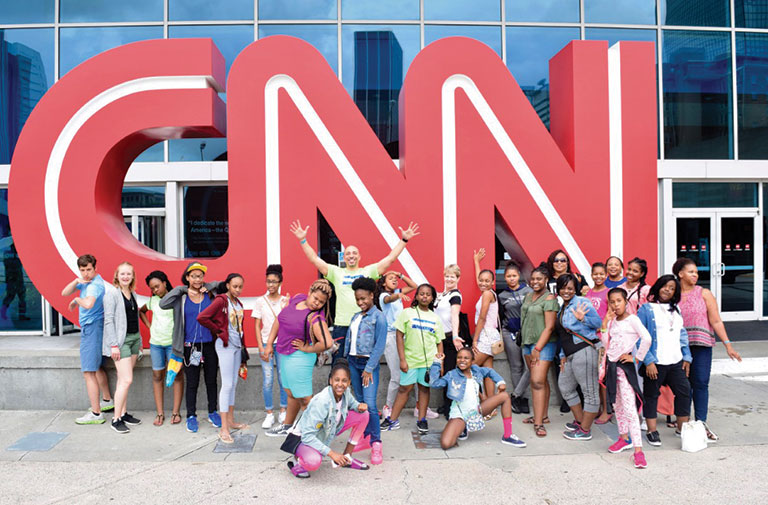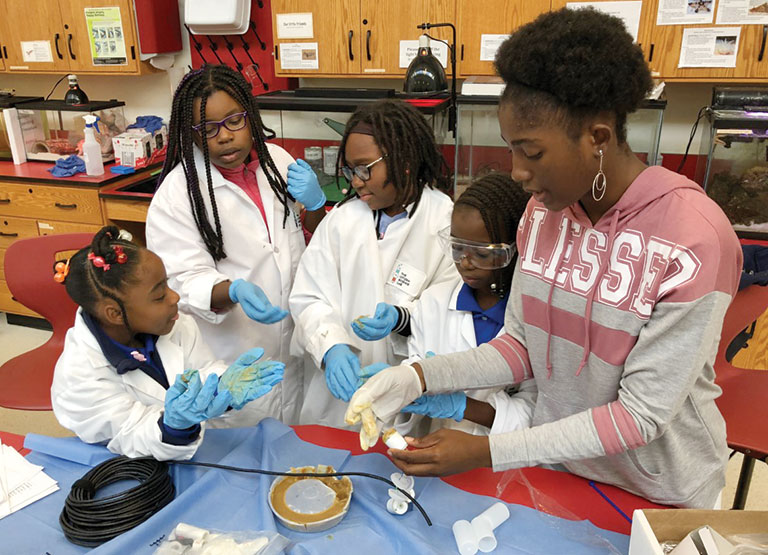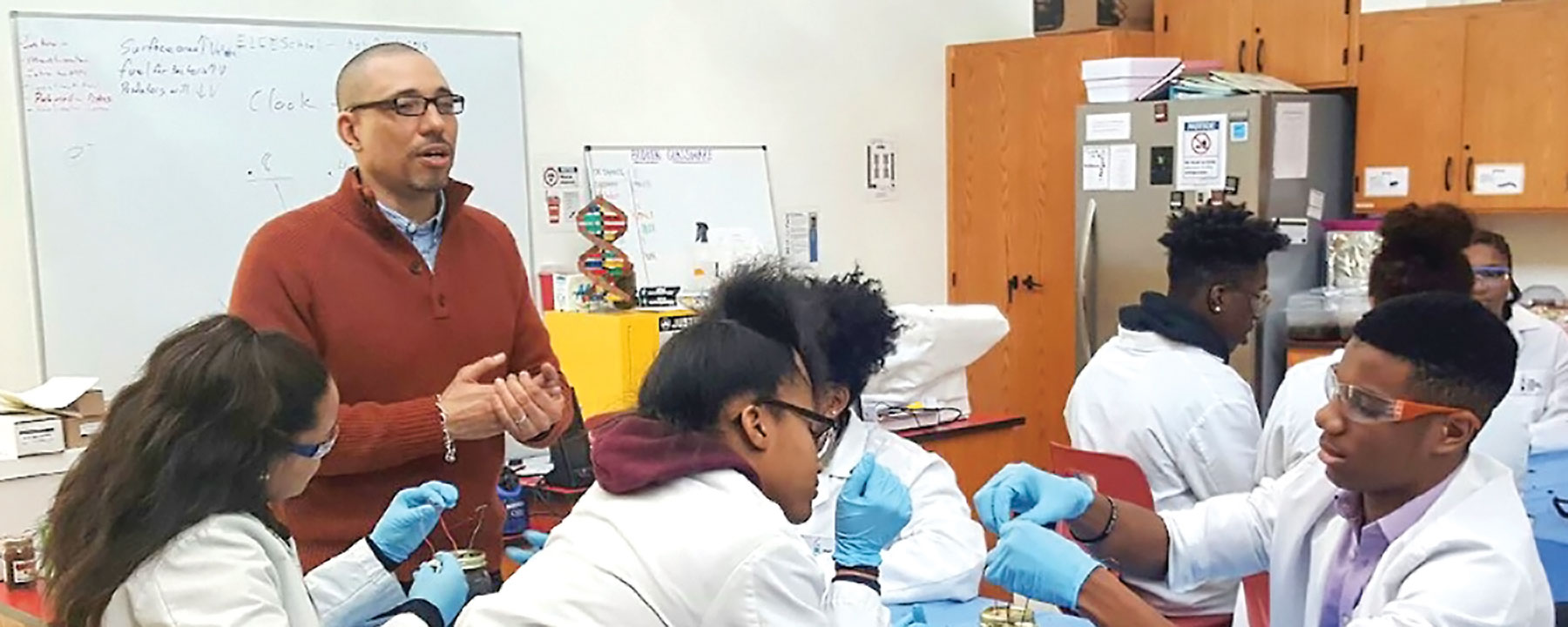During zoology camp at the Citizen Science Lab in the Hill District, kids dissect the unexpected. Fetal pigs. Sharks. “They’re grossed out and then totally get into it,” says Andre Samuel, a research biologist and the nonprofit’s founder and president. “We only ever had one student who refused to do a dissection. Which is not bad considering we’ve had over 4,000 students come through our doors.”
The only requirement for K–12 students to join the Citizen Science Lab’s after-school programs, workshops, and summer camps is a desire to learn, and not portfolios boasting high GPAs and blue ribbons from science competitions. Prior to switching to virtual learning in the wake of COVID-19, the lab’s main campus, funded primarily through grants, offered on-site homeschool workshops during the day and after-school programming geared specifically to exposing Black students to robotics, engineering, and bioengineering. A second, self-sustaining lab opened in the South Hills in June 2019. Each offers state-of-the-art equipment in spaces that are colorful and bright.
“We didn’t want them to look like an institution or even a classroom,” says Samuel, who was recently lauded with Carnegie Science Center’s 2020 Leadership in STEM Education Award.
“I have a mission to make sure science is fun and accessible for kids of all backgrounds and nationalities, but, in particular, to make a difference in the Black community,” he says. “As a Black male scientist, it’s very lonely. We generally don’t have people that work in STEM [science, technology, engineering, and math] in our families, anyone to guide us properly, or have a place in the community where we can just try it out.”
“As a Black male scientist, it’s very lonely. We generally don’t have people that work in STEM in our families, anyone to guide us properly, or have a place in the community where we can just try it out.” – Andre Samuel
Science has always been his thing. As a kid growing up in Washington, D.C., the toys that excited Samuel were old microscopes and chemistry kits discovered at garage sales. “I always enjoyed figuring out how things worked,” he recalls. “The overall function of how life works gives us a sense of respect for it. But it also opens up a lot of doors for improvement of life, and that’s what we as scientists do; we’re constantly looking to see how we can improve life.”
That’s at the heart of what the Citizen Science Lab has been all about since its inception in 2015: improving lives. Teaching, encouraging, mentoring.
“I can’t say enough good things about Dr. Samuel and the work he’s doing,” says Scarlet Morgan, whose 14-year-old granddaughter, Tashari Morgan, has been active in the lab since she was 7. “How can kids envision what they want to be if they never see it? So, they are put in a position to experience not only STEM, but to see what a more comfortable kind of life is like so they can aspire to have that for themselves.”

“How can kids envision what they want to be if they never see it?”
– Scarlet Morgan

Samuel, along with four additional scientists and part-time staff members who are educators and college students majoring in the sciences, leads hands-on experiments in areas such as bioengineering, underwater robotics, and drone operation. This September, students will learn how to model the COVID-19 spike protein, using computer simulations to screen molecules that combine to inhibit the virus.
Samuel graduated from the University of the District of Columbia with a degree in biology, studied genomics and bioinformatics at George Washington University, and, while a Ph.D. candidate in biology at Duquesne University, founded the S.I.G.M.A. Science Mentorship Initiative. The acronym speaks to the program’s core principles of science, innovation, growth, mentorship, and achievement. In 2008, that summer program introduced a group of diverse ninth graders to the university’s lab, encouraging them to pursue careers in scientific research—setting the stage for Samuel’s future, as well.
Fostering a science-literate community is more important than ever, stresses Samuel. “We have to give kids truthful information and experiences in labs, teaching them to understand you can go to certain sources to verify that certain information is correct, while understanding that even those sources aren’t always the last word because science is always changing and evolving,” he says.
“I always felt that the work that I was doing was making a direct impact on making Black lives matter. We are showing how much we value Black lives by making sure we take students in, teach them everything we know about how we are making it as scientists, and how they could also make it as a scientist.”
Adds Scarlet, Tashari’s grandmother, “Dr. Samuel not only likes to give kids the experience of STEM, but when they’re traveling for competitions, he gives them the experience of eating in nice restaurants and staying in nice hotels. He takes them to cultural places. He wants them exposed. How can they have a vision of how they want to live if they never see it? He inspires that vision within them.”
Receive more stories in your email
Sign up
